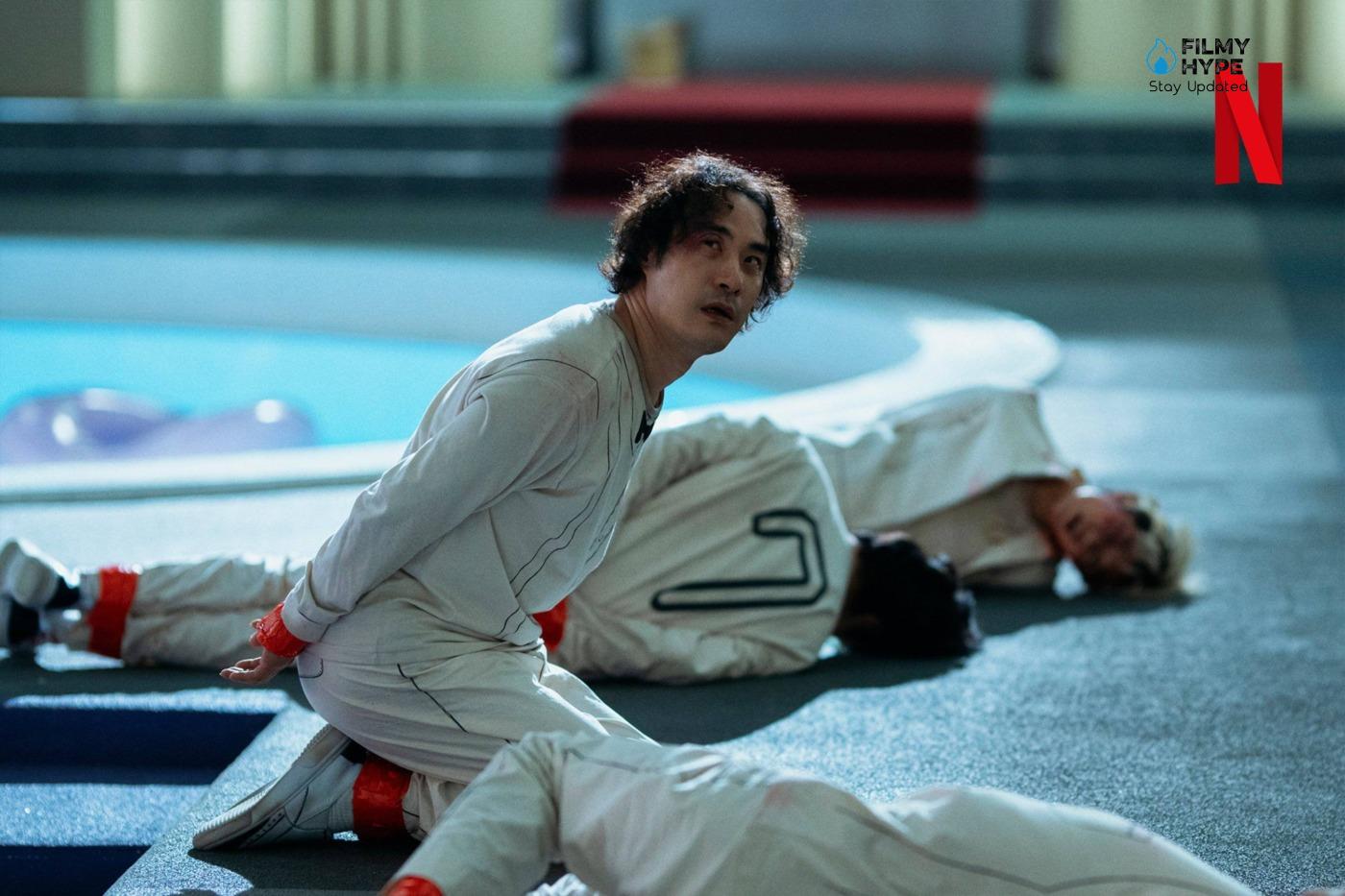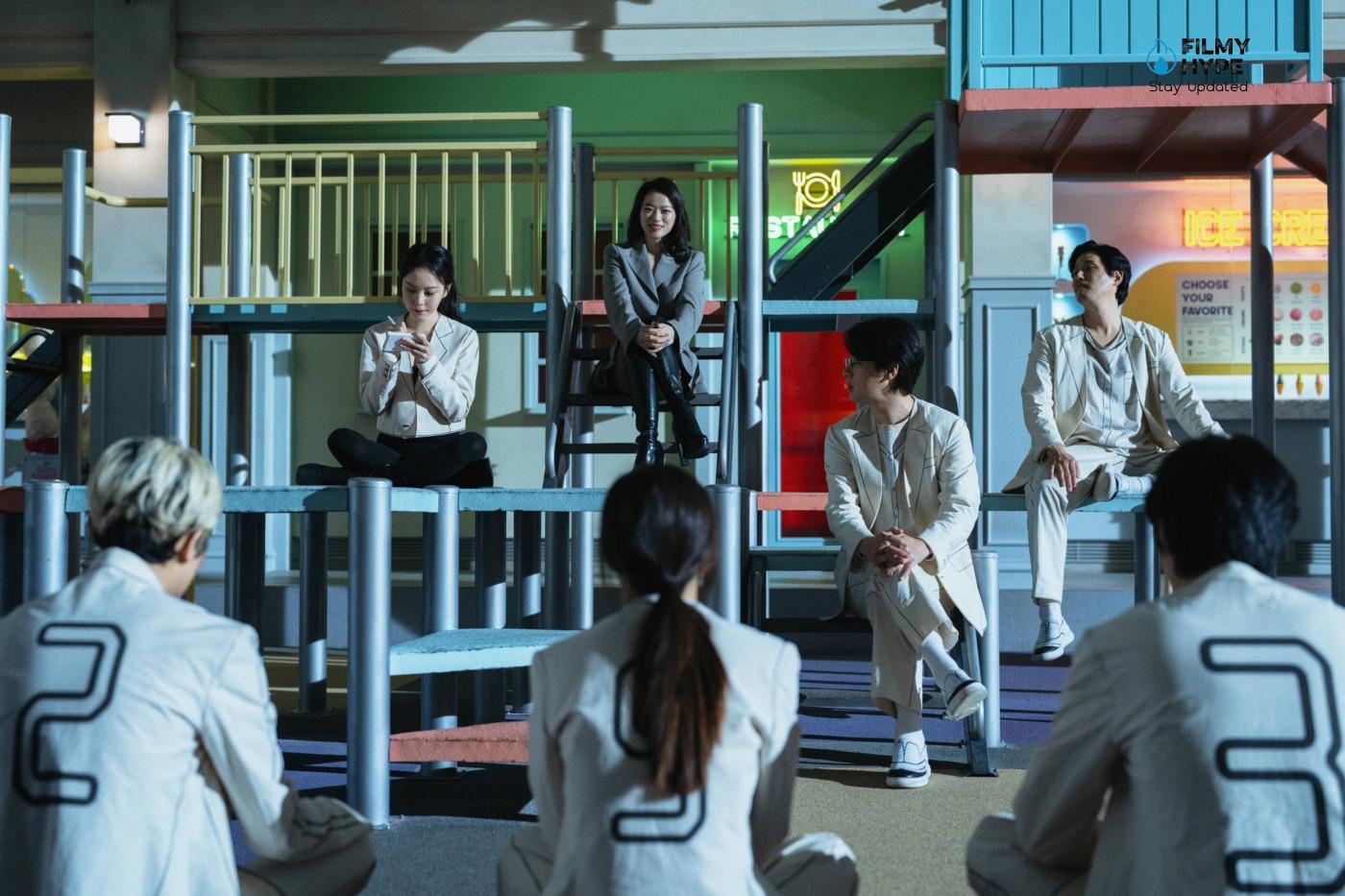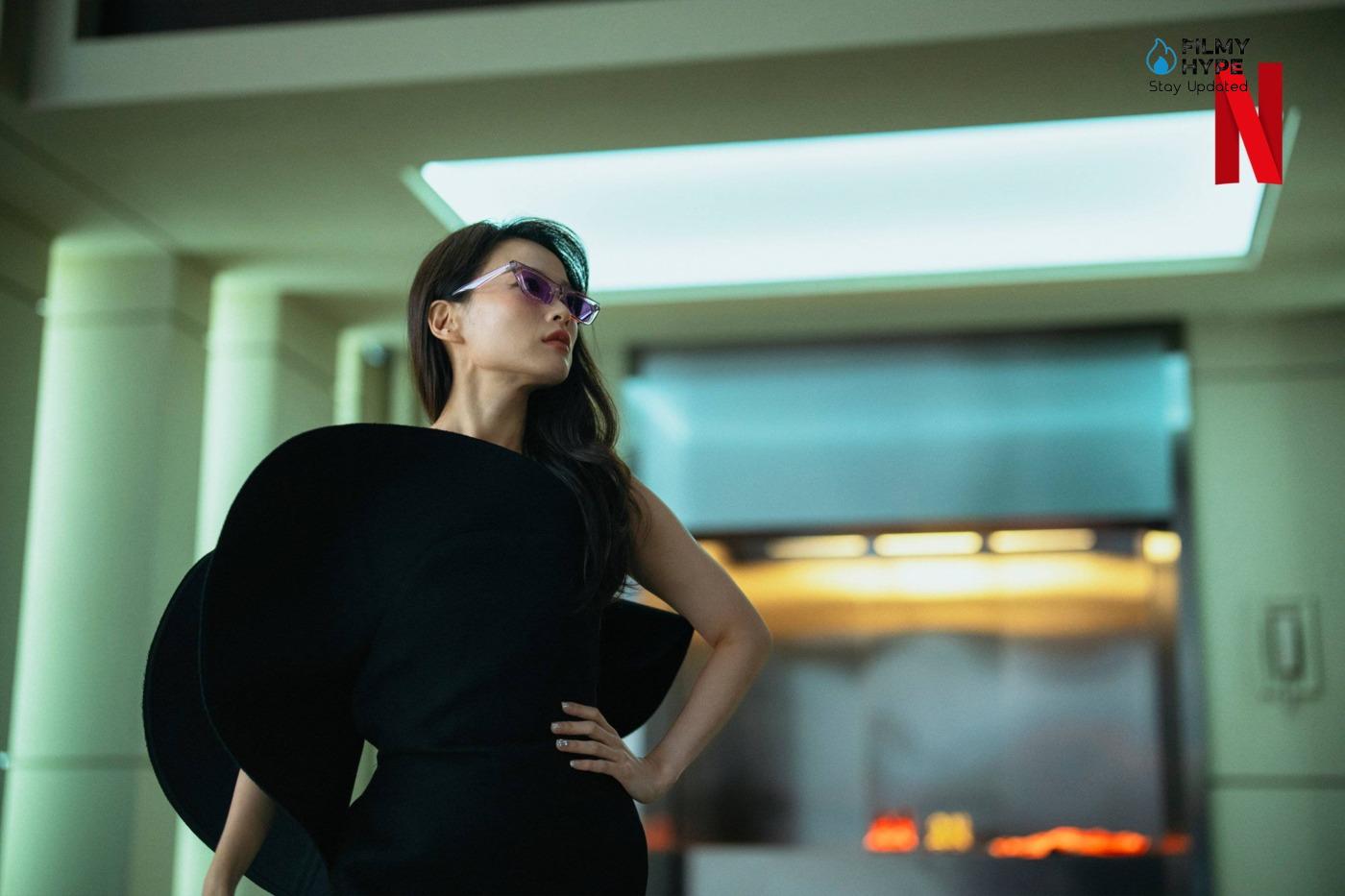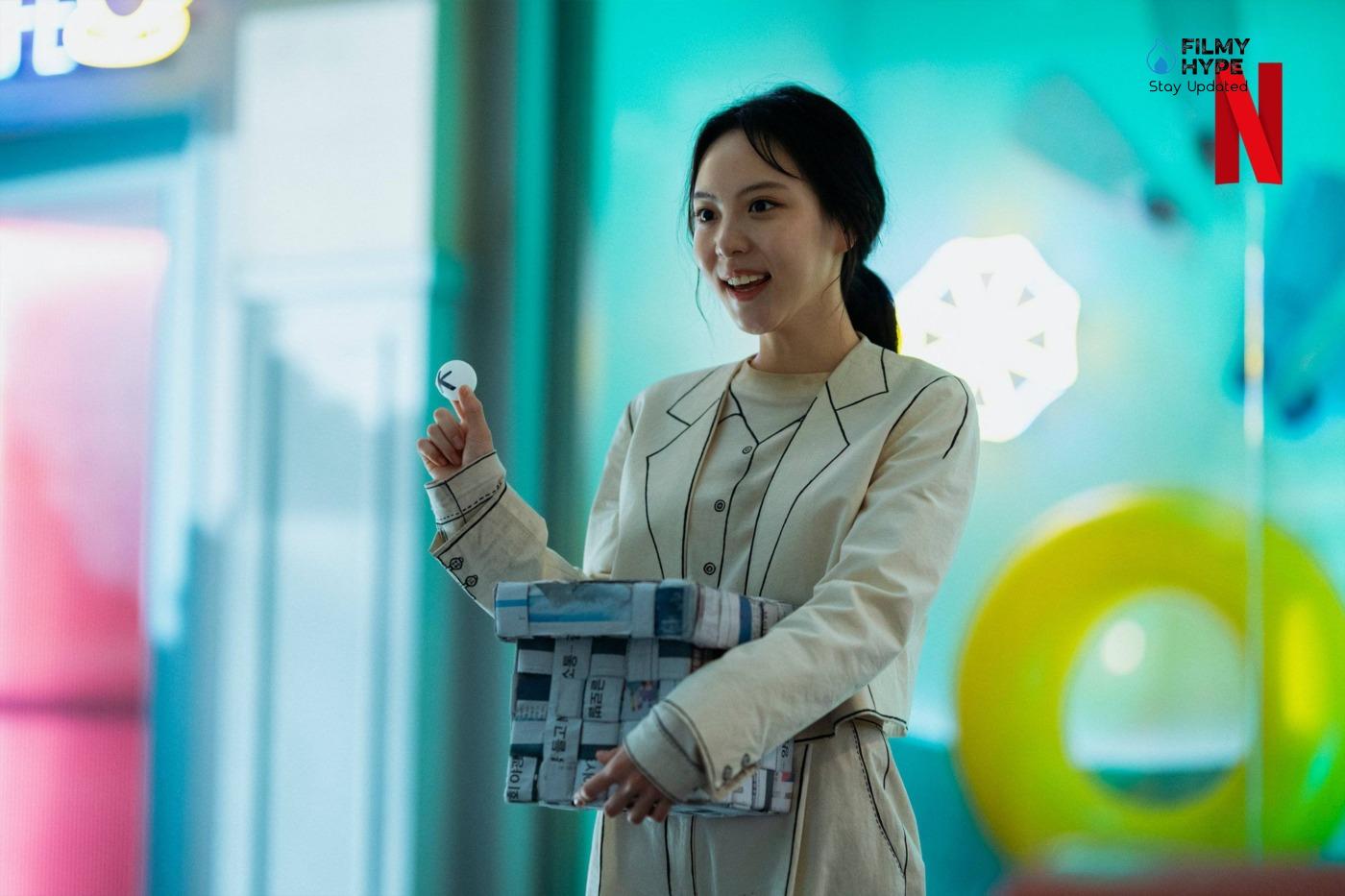The 8 Show Review: The Legacy of Squid Game and the World of Reality Shows
Cast: Ryu Jun-yeol, Chun Woo-hee, Park Jeong-min, Lee Yul-eum, Park Hae-joon, Lee Zoo-young, Moon Jeong-hee, Bae Seong-woo
Director: Han Jae-rim
Streaming Platform: Netflix
Filmyhype.com Ratings: 4/5 (four stars)
A new survival game has arrived on Netflix, The 8 Show, a South Korean series that winks at great masterpieces of the serial and cinema world such as Squid Game and The Truman Show, and is ready to become your new obsession. Consisting of eight episodes and created by Han Jae-rim who is the writer and director of the series, The 8 Show is a title ready to leave you speechless but, even more, to push you into profound reflections on contemporary society, on the topic of money, about the differences between different social strata, about selfishness and much more. Taken from the webtoon – that is, a type of comic created to be read on-screen – entitled Money Game and created by Bae Jin Soo, this series tells the story of eight people, all with problems with money, self-esteem, depression, and one step from suicide that they find themselves part of a crazy game that promises to give them money as time passes.

A game that will turn out to be much more macabre than expected and from which getting out will not be so easy. As time passes, the contestants soon begin to understand that the game they are playing is not as simple as it might have seemed at first. Every minute they earn thousands of won to pay off their debts, but not all that glitters is gold: subsequently, in fact, they understand that inside the playground building in which they are locked up, everything is fake: the swimming pool, the food, and even the bathroom. Everything necessary for their survival must be bought with the money added to the account during the day, with the small detail that the requested objects are charged about a hundred times their value on the market. So, a simple 5,000-won pack of Marlboros costs 500 won. The moral question is around the corner and they soon find themselves faced with difficult choices, which will concern not only the amount to spend but also other lives to save.
The 8 Show Review: The Story
An eight-story building dotted with cameras. Eight contestants – played by Ryu Jun-yeol, Chun Woo-hee, Park Jeong-min, Lee Yul-eum, Park Hae-joon, Lee Zoo-young, Moon Jeong-hee, and Bae Seong-woo – were randomly distributed across each of them. A cash prize that increases every minute (increasingly from the first to the last floor) and the ability to use that money to buy anything, except food, distributed from the eighth floor down. A few rules immediately make clear a disparity in treatment, a concentration of power and resources in the hands of the highest levels irremediably destined to undermine the relationships of coexistence between the various tenants. After initial cooperation, this is how, day after day, on the set of this bizarre reality show – which sought out its participants among the most desperate and needy individuals in South Korean society – the roles begin to become more and more defined and the power of the relationship begins to seem like the same ones that regulate society off the set, between economic disparities, selfishness, and competitiveness.
The 8 Show Review and Analysis
The 8 Show doesn’t aim to be better than Squid Game, it takes inspiration from it but also tries to immediately distance itself from it. In this sense, you will notice how each episode is divided between comical and dramatic moments, but without really going into deep reflections or tear-jerking situations. Everything remains on the surface, insinuating into the viewer some reflections on contemporaneity which in many cases are obvious, but which are always good to highlight. The key concept within the series is that of time, its flow, and its value. How much is a minute, an hour, or a day of your life worth? Is the amount the same for everyone? The 8 Show, as the title tells us but the contestants themselves tend to forget, is still a reality show. In fact, like any self-respecting reality show, the viewers’ primary enjoyment lies not in seeing the contestants overcome the challenges assigned by the scriptwriters, but in everything that “the beauty of live broadcasting” entails: arguments, ploys, alliances, accidents along the way.
As the years have passed, the viewer has become demanding, wanting to see more and more on the screen. The result? Very often it is the competitors and their dignity that lose out. How many times have we found ourselves faced with an indefinable number of famous people by chance or former people forced to get in front of the cameras, in ridiculous situations, to recover their lost popularity? Each episode is around 40 actual minutes and apart from some dead time or useless digressions, the series seems to flow more quickly than all those released in the last period on the platform. What particularly helps the narrative is the director’s decision to insert a new surprise element into each episode. We not only see the characters evolve into a new version of themselves, but some new detail always appears useful to make us understand what the ultimate goal of the architect of this perverse game is.

The 8 Show is certainly missing two important elements: the introspection of the characters (which here are still a bit too fictional) and moments of true drama. The 8 Show is an excellent K-drama but due to some small limitations, it fails to break away from the stereotypes of its genre and transform itself into a truly revolutionary drama. A fitting ending (obvious, but no less intelligent) to a social experiment with an indisputable Heart of Darkness-style moral. Based on a few simple rules (and related privileges), the world of The 8 Show, including its challenges and sadistic games, seems to build itself: a direct emanation and consequence of the power relations that are established, little by little, between his players. Day after day, the typical dynamics of the contemporary world begin to take shape – in a progression that seems to follow the historical evolution (or involution) of human societies – outlining an extremely familiar reality made up of selfishness and envy, exploitation, and competition.
A small version of society which therefore inevitably ends up degenerating into a social nightmare, with the “higher levels” holding resources and wealth and the “lower” ones forced to work only to enrich themselves more and more. It is at this point that the series becomes interesting, and well-intentioned as it is to support a social criticism that it seems to want to follow to the end, tackling head-on the distortions and ruthless logic of capitalism and contemporary South Korean society. But eight episodes, for a story of this type, are certainly not few, and soon the allegory with its political upheavals – between cyclical seizures of power, revolutions, and betrayals – ends up becoming redundant, diluting itself in the consolidated logic of the thriller and giving life to a construction of tension made up of superfluous scenes, some narrative forcing and decidedly more conventional twists.

Despite this, however, The 8 Show still manages to be coherent, making its schematic and essential nature (the characters, as per the script, represent very specific “types”) its main strong point and proving, on the one hand, a solid entertainment product, on the other, a lucid criticism of an entire system. A criticism, of course, aware that it cannot be as incendiary as it would have liked (as the mocking and disconsolate metanarrative ending suggests) but still capable of hitting the mark. To make clear the overwhelming mechanisms of a society capable of engulfing everything, including any critical discourse. The 8 Show is a dramatic and comic series at the same time, deep and violent, hard and sweet, which will glue you to the screen right from the first episode because its intelligent and significant plot is so strong on a narrative and communicative level that it captures anyone and drag him into a world of fiction from which he will struggle to escape.
In addition to this, the characters in this series are studied and represented to perfection so that they can represent all the typical personalities of human beings and act as a metaphor for good and evil, selfishness and altruism, self-confidence and insecurity, all thanks to an extremely realistic interpretation of the actors. What is most engaging about this series, which is undoubtedly one of the most successful Netflix titles of the last period, is the fact that it pushes the viewer into a continuous examination of conscience where, with every move of the characters, one is led to think how we would have behaved if we were in their place. The 8 Show criticizes contemporary society subtly and intelligently with a story that uses irony to get the messages across even more clearly and directly. This series pushes us to think and rethink the structure of contemporary societies, puts the spotlight on inequalities, on the role of the world of entertainment in people’s lives, and on how society itself cannot seem to exist without winners and losers, without rich and poor, without leaders and subjects.

So, like a punch in the stomach, we are all forced to think about what our role is within society, what position we want to occupy, how manipulable we could be, and to what limits we can go for money. The fulcrum of the story revolves around money, its management, and how much it pushes men to exploit other men or even leads them to deprive themselves of any type of empathy or humanity. Let yourself be overwhelmed by this crazy and mega-vicious survival game, you too will enter a world where you are pushed to the limits to demonstrate your essence because you won’t regret it you won’t be able to wait to watch the next episode. While mysterious – and sadistic – paying observers watch 8 strangers slaughter each other for money, the 8 “types” represented by the Program participants tell us everything we already know about contemporary society.
The 8 Show Review: The Last Words
A good series that, despite some downtime now distinctive of K-dramas of recent years, is still capable of involving the viewer and continually surprising him with interesting twists. An ending is perhaps a little too simple but still necessary for a conclusion consistent with the story. Ultimately, the trend towards increasingly explicit and increasingly gratuitous violence is getting out of hand. Especially in Korean series like this one, defined (to launch it) as “the heir of Squid Game”. But the mechanism of the game and the money – the ultimate motivation for everything – here is infinitely more banal than that of Squid Game. Cheap, in a word. And with many, many fewer subtexts than the title whose legacy it should take up… Without succeeding at all.






